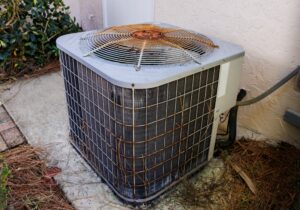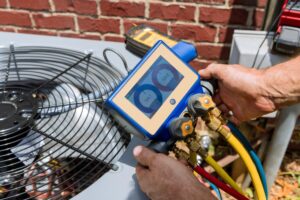When most people think of air quality, they think of outdoor pollution. What they don’t know is that the air in your home can often be more polluted with contaminants. According to the Environmental Protection Agency, indoor air pollutant levels can sometimes be up to 100 times those of outdoor air! Highly polluted indoor air can lead to many health problems, including allergies and asthma, so it is extremely important to get your air tested regularly.
Take a closer look at why you should have your indoor air quality tested today:
Reasons to Test Indoor Air Quality
There are several compelling reasons to test indoor air quality in your home. Let’s explore them further:
Health Concerns
The most significant reason to test IAQ is to protect your health and that of your family. Exposure to poor indoor air quality can lead to a wide range of health issues, including allergies, asthma, respiratory diseases, and even certain types of cancer. By testing your IAQ, you can identify potential air contaminants and take steps to improve the air quality in your home.
Identifying Invisible Threats
Many indoor air pollutants are invisible and odorless. Carbon monoxide, radon, and volatile organic compounds (VOCs) are just a few examples. These pollutants can only be detected through proper IAQ testing.
Maintaining a Comfortable Living Environment
Poor IAQ can also affect your comfort at home. It can cause unpleasant odors, excessive humidity, and uneven temperature distribution. By identifying and addressing IAQ issues, you can enhance the overall comfort of your living space.
Improving Energy Efficiency
Believe it or not, testing your indoor air quality can also help improve energy efficiency. A home with poor air quality often has issues like air leaks and inadequate insulation, which can lead to higher energy bills. By addressing these issues, you can enhance your home’s energy efficiency and save on utility costs.
What Can IAQ Testing Detect?
Here’s a look at the top three indoor air quality concerns that proper testing can help diagnose:
Biological Pollutants
The biological category includes pollutants such as dander, bacteria, pollen, and mold. Whether you have plants or pets living inside or not, it does not mean that you have more or less biological pollutants, since most of them are carried indoors on clothes or through open windows anyway.
VOCs
Volatile organic compounds (or VOCs) are chemicals or non-living substances such as lead, radon, and formaldehyde. Depending on the age of your home, lead may be found in some paint and even on your walls. Another potentially problematic VOC is radon. Radon is a naturally forming gas that can move from your home’s foundation to inside your home through small cracks. Formaldehyde is often found in household items and construction materials. All of these VOCs are dangerous and need to exist at the lowest level possible indoors to keep you and your family safe.
Combustion Pollutants
Combustion pollutants are produced by ignition. Secondhand smoke from cigarettes and carbon monoxide fall into this category, and each should be kept to a minimum to reduce the potential health problems associated with both.
Indoor air quality tests measure the air and calculate how many pollutants there are in each category. Although not all the pollutants on this list are dangerous, you still want to keep them as low as possible.
The Importance of Professional IAQ Testing
While there are DIY air quality testing kits available, they often provide limited information and can be less reliable than professional testing. A professional air quality test conducted by a certified technician can provide a more comprehensive assessment of your home’s air quality. They have the expertise and equipment to identify a wide range of pollutants and provide accurate results.
A professional can also provide guidance on how to improve your IAQ based on the test results. This may include recommendations for ventilation improvements, air purification systems, or other remediation measures.
How Do You Improve Indoor Air Quality?
Now that you know the importance of scheduling IAQ tests, you may be wondering, “What steps can be taken to improve my home’s air quality?” It’s a reasonable question, and the good news is that there are a variety of things you can do to make the air inside your house cleaner:
- One of the easiest ways to improve your air quality is to be sure to replace your filters regularly, even monthly. High-quality air filters can stop some pollutants from being circulated throughout your home.
- Another way to improve your air quality is by performing a precision tune-up on your HVAC system twice per year.
- After conducting air quality testing, you can work with your professional HVAC team to find solutions that serve you best. This could include the use of HEPA filters, the elimination of sources of pollution, using special air purifiers, and more.
Your health and comfort at home should never be compromised. Making sure that the air you breathe is clean and safe is a significant step towards ensuring a healthier and more comfortable living environment. Call H.J. Faust to schedule your indoor air quality test today!



